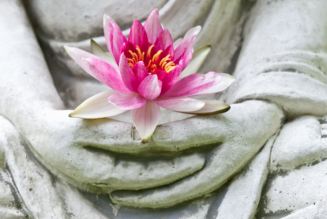Ayurveda & The Wisdom Of The Doshas
According to the ancient teachings of Ayurveda, there are three doshas called vata, pitta, and kapha. We can think of these three doshas as the guiding principles that keep all our bodily functions balanced and healthy.
“Health results from the natural, balanced state of the doshas.
Therefore, the wise try to keep them in their balanced state.”
– Charak Samhita
The Wisdom Of The Doshas
Each of the three doshas are present throughout the body. They govern our physiology and all activities of the body, mind, and emotions. Not only do the doshas govern our bodily functions but from a more truer perspective – they are the governing principles of Nature. The ancient science of Ayurveda understands the doshas as being a direct expression of Nature’s intelligence and therefore seeks to find balance by understanding the doshas.
Vata
Movement, motion and flow are always occurring in all parts of our body at every moment. This movement is thought to be under the guidance of vata dosha.
Pitta
Pitta dosha is involved with metabolism at every level of the body. For example, all transformations at the organ, tissue, and cellular level are governed by the principle of pitta dosha.
Kapha
Every cell, tissue, and organ system are involved with providing structure to the body. The process of creating structure involves building, maintenance, and repair – which are all under the principle of kapha dosha.
Discovering The Ayurveda Concept Of Dosha
A Balancing Act
We all have a unique state of balance which signifies a state of good health. We can say that when all your doshas are balanced this illustrates a balance in all bodily reactions, metabolism, flow and communication of all systems of the body. However, what does it mean when a dosha is out of balance? Very simply, an unbalanced dosha represents a subtle imbalance within the body. For example, if vata dosha is increased this can lead to increased dryness of the body [i.e. dry skin, constipation] and increased lightness or ungroundedness of the mind [i.e. anxiety, worry]. Likewise, if pitta dosha is increased, this can lead to an increased fiery aspect to the digestive fire [called “Agni” ] and result in heartburn. Finally, if kapha dosha is increased this can cause increased mucous formation, congestion and/or heaviness to the body. These are all very simple examples to illustrates how physiological changes of the body occur due to subtle changes in the three doshas.
The Balancing Of Doshas
Before we can explain how to correct any underlying doshic imbalances it is important to introduce two very simple principles common to the science of Ayurveda. These two principles are:
- The Principle Of Similarity: like increases like
- The Principle Of Opposites: opposites restore balance
The Principle Of Similarity
This principle of ‘like increases like’ clearly explains that if one of your doshas [vata, pitta, or kapha] becomes imbalanced then it’s likely that you will experience symptoms which directly reflect that particular quality which belongs to the imbalanced dosha. For example, if one eats hot and spicy food [which is fiery like pitta] on a hot [fiery-pitta] summer day while being forced into an aggravating [fiery-pitta] heated discussion – it is then likely that the hot-fiery quality of pitta may manifest itself within the body such as an inflammatory condition [i.e. heartburn, skin rash, urticaria, etc.].
The Principle Of Opposites
Now, let us assume the above mentioned hot-fiery pitta individual comes to see you for an Ayurvedic consultation. Using the law of opposites, we would want to consider the opposite quality of hot [which is cool and/or cold qualities] to bring the pitta dosha back into balance. Therefore, as a very simple example, we would first suggest avoiding such aggravating factors and next consider opposing qualities – such as cool qualities of aloe vera, amalaki, neem or other soothing elements such as ghee [clarified butter] to help pacify and balance pitta dosha.
The Governing Influence Of The Doshas
The concept of the three doshas is not only limited to our body but also describes the changes involved in the hours of the day, the days of the year, and the entire span of our lives. In other words, the three doshas [vata, pitta, and kapha] influence everything.
CLICK HERE – To Learn More About The Doshas




![Female Health: Amenorrhea [cessation of menses] – An Ayurvedic Perspective](https://healthyayurveda.com/wp-content/uploads/2015/07/1.-Amenorhea--327x219.png)



